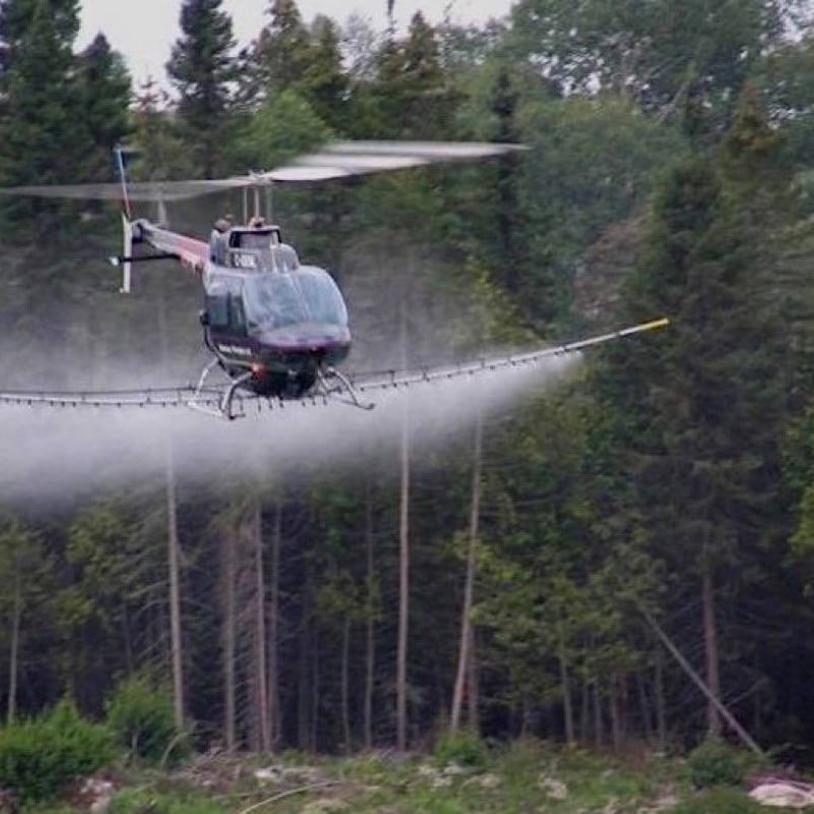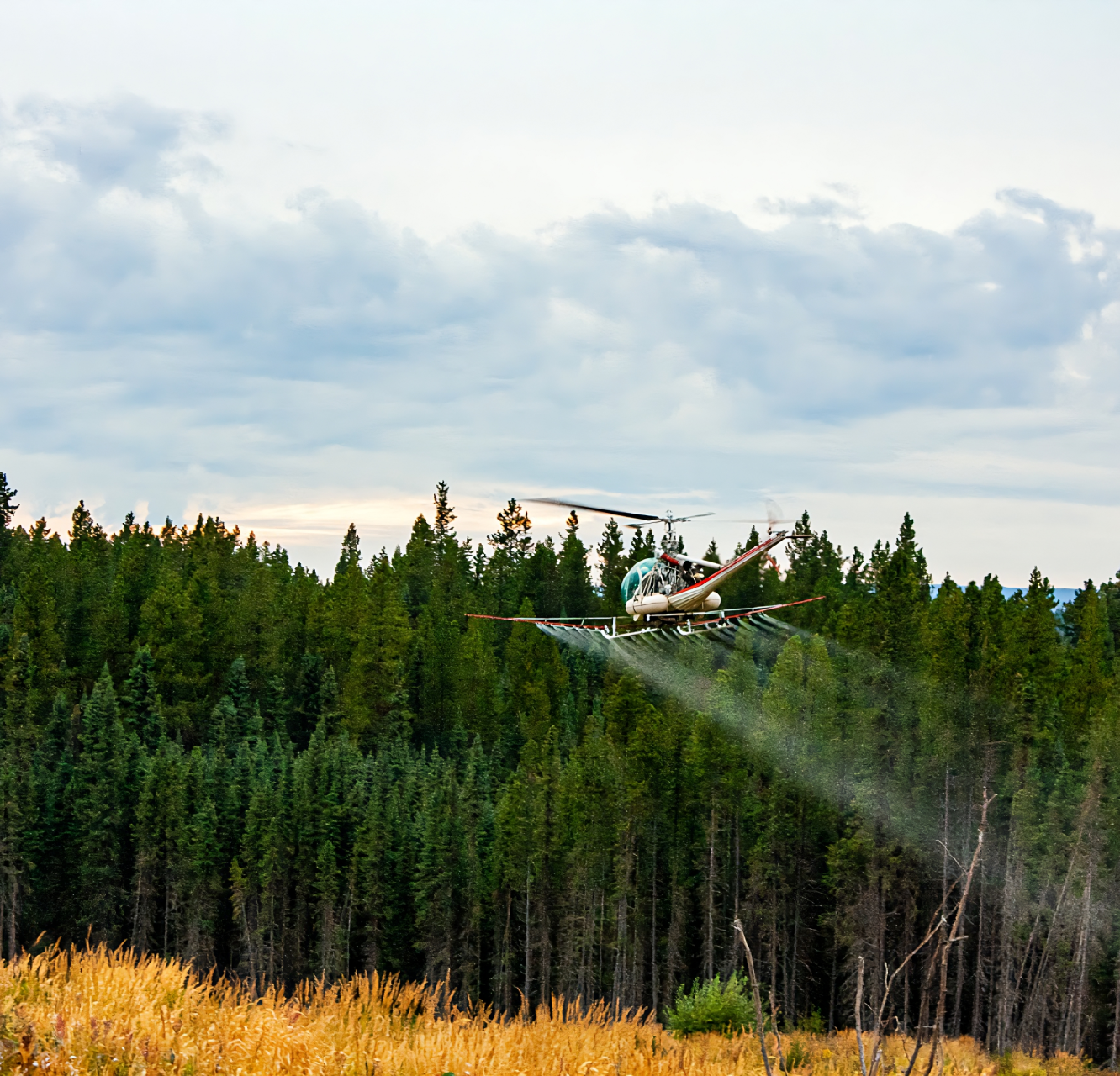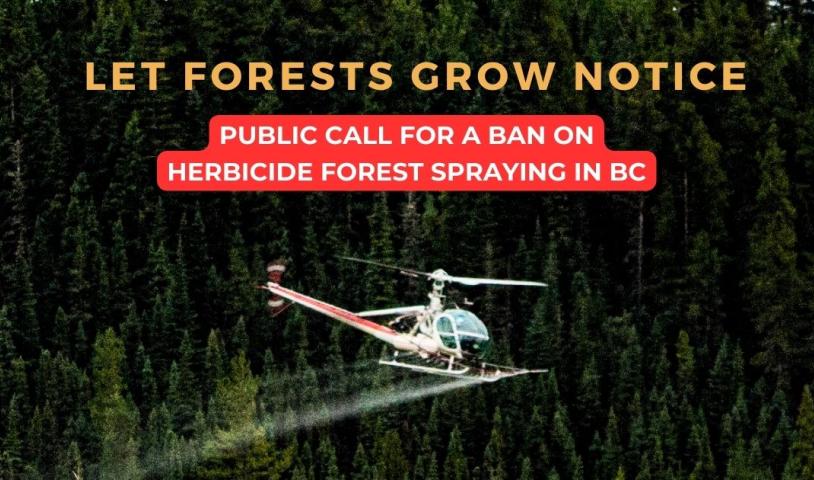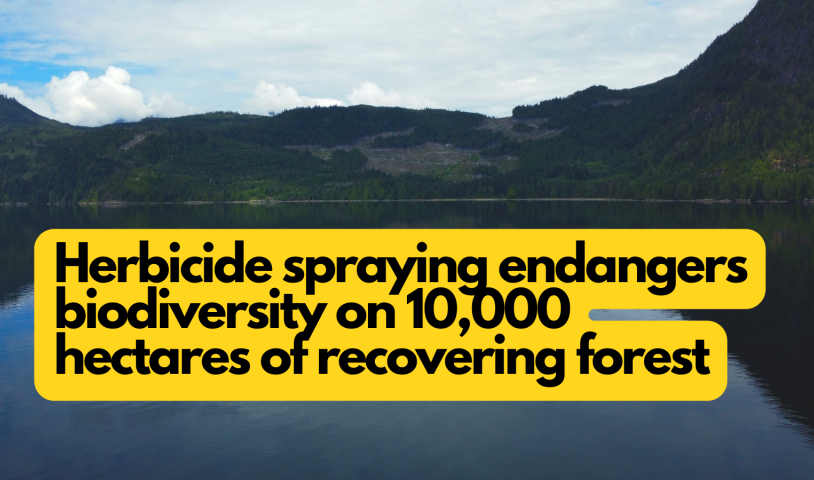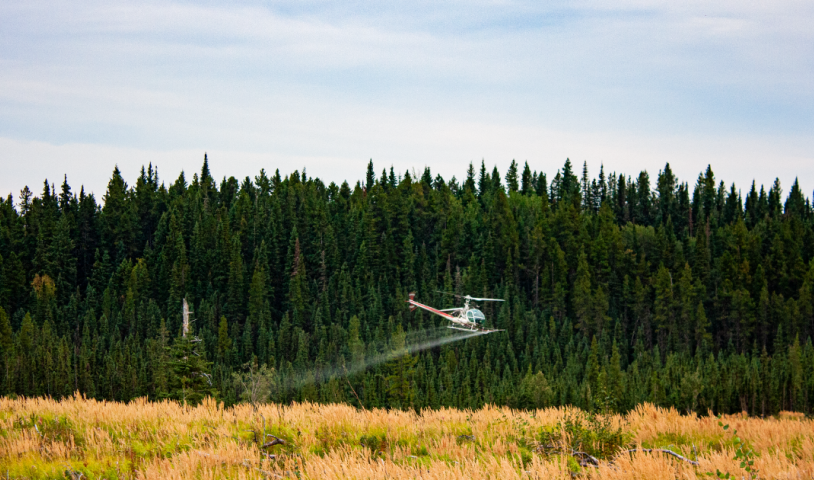Toxic herbicide spray drops 97 per cent throughout Ma’amtagila territory in Great Bear Rainforest after alarm sounded
Thursday, March 7, 2024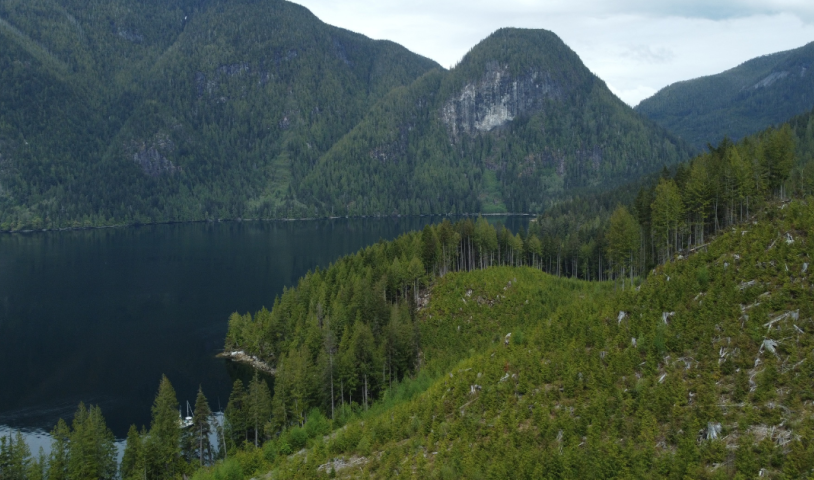
Over 9,500 ha of forested land saved from glyphosate spraying in 2023
VANCOUVER / UNCEDED xʷməθkʷəy̓əm, Sḵwx̱wú7mesh AND səlilwətaɬ TERRITORIES — A pesticide use summary document recently obtained by Wilderness Committee and Awi'nakola Foundation found most herbicide spraying planned throughout Ma’amtagila territory and neighboring Kwakwaka’wakw Nations — on northeast Vancouver Island and adjacent islands — in 2023 did not proceed. This comes after Ma'a̱mtagila and other Kwakwaka’wakw chiefs, band council members, elders, as well as the public and environmental groups opposed plans to spray glyphosate throughout previously logged forests.
“Glyphosate is a pervasive herbicide, threatening the intricate web of life that sustains the land and diminishes precious biodiversity. It undermines the Ma’amtagila peoples' deeply-rooted medicinal and food harvesting traditions, which are essential to our well-being from time immemorial,” said Gigame Mak'wala, Chief Rande Cook of Ma'amtagila First Nation. “As future generations map pathways forward in reconnecting with the land of their ancestors and reclaim their ancestral rights, glyphosate spraying over all plant life diminishes and destroys any of that potential, and I fear that is the goal of corporations and government."
The logging company's original herbicide spray plan included spraying 9,840 hectares of land with glyphosate and triclopyr — both toxic chemicals that kill plants and fungi and reduce biodiversity. These pesticides were to be applied to replanted forests over an area equivalent to 24 Stanley Parks. But the annual use summary recently obtained from the government shows that the spray was reduced to roughly three per cent of the original area. This 258.28 hectares of regrowing forests was still sprayed with herbicides — 41.75 hectares with glyphosate and 216.53 hectares with triclopyr.
“The government must meet with us to address the lack of consent from First Nations for operations impacting our territory. Industrial project decision making, such as glyphosate spraying, must align with UNDRIP including the need to achieve free, prior and informed consent. This means that a ‘no’ from a First Nation is respected.” - Gigame Pudlidagame, Chief Brian Wadhams of Ma’amtagila First Nation
In the summer of 2023, hereditary leaders, elected leaders, and Indigenous food and medicine harvesters from several Kwakwaka’wakw Nations sent a letter to the B.C. government voicing their concern over these plans. They called for updating the Integrated Pest Management Act to align with the United Nations Declaration on the Rights of Indigenous Peoples (UNDRIP) to reflect true free, prior and informed consent, including a legal pathway where a Nation can refuse a company’s request to spray.
“We spent a significant amount of time and money investigating and opposing glyphosate spray plans. It worked to halt most of the spray last summer, but what about the coming years?” asked Gigame Pudlidagame, Chief Brian Wadhams of Ma’amtagila First Nation. “The government must meet with us to address the lack of consent from First Nations for operations impacting our territory. Industrial project decision making, such as glyphosate spraying, must align with UNDRIP including the need to achieve free, prior and informed consent. This means that a ‘no’ from a First Nation is respected.”
In 2023, members of the Ma’amtagila Nation, Wilderness Committee and Awi'nakola Foundation conducted site visits to document the plants and wildlife impacted by the herbicides. This included many plants significant for their traditional food and medicinal purposes. They raised the alarm over the plans, encouraging the government to halt the spraying of herbicides, including glyphosate.
“The sale and use of glyphosate needs to be banned nation-wide. The fact that logging companies knowingly poison the land where trappers, gatherers, hunters and the general public spend time is yet another shocking example of why the forestry sector has lost its social license and desperately needs a paradigm-shift,” said Mark Worthing, Programs Director at Awinakola Foundation. “High-level government initiatives like 30 by 30 for biodiversity are meaningless unless governments address on-the-ground policy practices like toxic spraying and continued old growth ecosystem logging.”
Glyphosate is a probable carcinogen and has been shown to impact species at risk, bees, amphibians and much more. In the logging industry, it’s used by companies to help grow cash-crop, commercial species and kill non-profitable ones. Often, these non-commercially profitable species are native plants important for wildlife, traditional food, medicine and ecosystem health.
“Glyphosate impacts three of the five kingdoms of life — fungi, plants and bacteria. Removing these species from an ecosystem has devastating and cascading effects that impacts wildlife and humans far and wide,” said Charlotte Dawe the Conservation and Policy Campaigner for the Wilderness Committee. “Government needs to create forest policies that focus on nourishing life and biodiversity and leave behind the status quo which manufactures death and destruction.”
While the groups are relieved that 97 per cent of the land was spared from glyphosate, the significant amount of time and resources required to find and investigate the plans, and call for a halt can’t be repeated every year and everywhere glyphosate is sprayed. Without a systemic change in how herbicides are used and allowed in the forest sector, the groups are worried that logging companies in the future will simply spray more herbicides to make up for the decreases in previous years.
Ma’amtagila, Wilderness Committee and Awi'nakola Foundation are calling for the B.C. government to ban the use of herbicides, including glyphosate, in the logging industry and co-develop post-logging management policies with First Nations that aim to maximize biodiversity recovery and traditional food and medicine values, rather than commercial values.
— 30 —
Photos of the territory to be sprayed
Background information
International Agency on Research for Cancer Monograph on Glyphosate
EPA Finds Glyphosate Is Likely to Injure or Kill 93% of Endangered Species
For more information please contact:
Chief Rande Cook | Ma’amtagila Nation
250-704-6777, rande@awinakola.com
Chief Brian Wadhams | Ma’amtagila Nation
250-974-4904, brianwadhams@hotmail.com
Charlotte Dawe | Wilderness Committee
778-903-3992, charlotte@wildernesscommittee.org
Mark Worthing | Awi'nakola Foundation
250-889-3575, mark@awinakola.com
